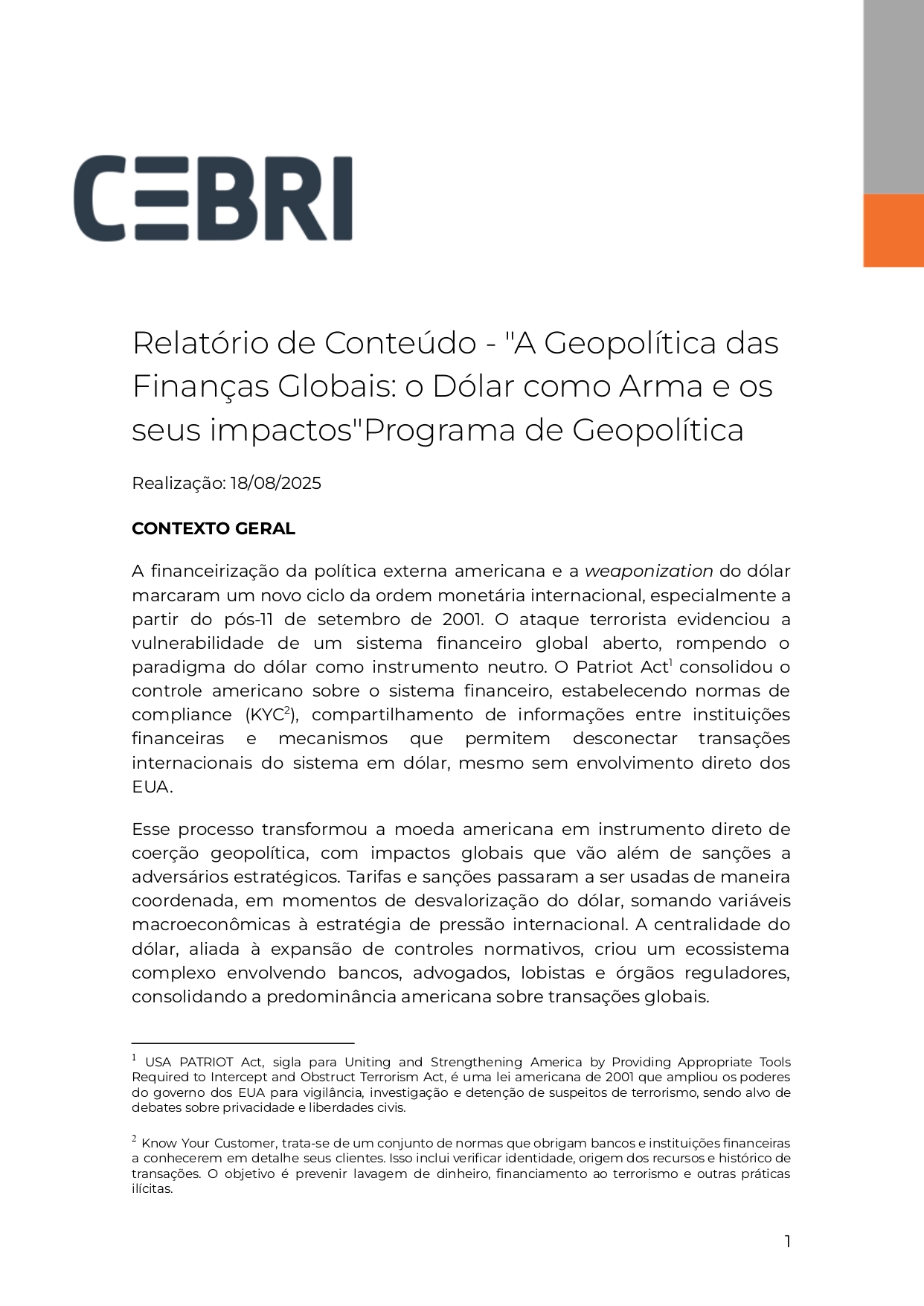Reports
The Geopolitics of Global Finance: The Dollar as a Geopolitical Weapon and Its Impacts
- 22 august 2025
Since the end of World War II, the U.S. dollar has consolidated its position as the central axis of international politics and economics. The debate over whether this position represents an “exorbitant privilege” or fits within the so-called Triffin dilemma is vast and influential, shaping a significant portion of the International Political Economy literature.
The concept of exorbitant privilege refers to the United States’ ability to finance external deficits thanks to the dollar’s central role as the primary reserve and transaction currency in the global economy. This structural demand for the currency allows the country to sustain persistent imbalances in its balance of payments without facing depreciation pressures or currency crises, since it can issue dollars or sell Treasury bonds to cover the deficit.
Economist Robert Triffin, in turn, warned that in the long run, the continuous supply of dollars to meet global demand would erode the currency’s credibility, ultimately weakening it — a paradox that became known as the Triffin dilemma.
Regardless of the theoretical perspective adopted, it is clear that the current U.S. administration has been using this unique condition of the dollar in an unprecedented way, intensifying its role as a geopolitical instrument. Such use carries the risk of triggering disruptions in the international financial system, with tangible effects on the real economy.
In this context, it becomes essential to understand how the transformation of the dollar into an explicit foreign policy tool — and the consequent conversion of the global financial market into an arena of strategic contest — affects the architecture of the world economy. This requires an integrated examination of the effects of U.S. fiscal and financial decisions, their use in the geopolitical chessboard, and their repercussions on international trade flows.
Since the end of World War II, the U.S. dollar has consolidated its position as the central axis of international politics and economics. The debate over whether this position represents an “exorbitant privilege” or fits within the so-called Triffin dilemma is vast and influential, shaping a significant portion of the International Political Economy literature.
The concept of exorbitant privilege refers to the United States’ ability to finance external deficits thanks to the dollar’s central role as the primary reserve and transaction currency in the global economy. This structural demand for the currency allows the country to sustain persistent imbalances in its balance of payments without facing depreciation pressures or currency crises, since it can issue dollars or sell Treasury bonds to cover the deficit.
Economist Robert Triffin, in turn, warned that in the long run, the continuous supply of dollars to meet global demand would erode the currency’s credibility, ultimately weakening it — a paradox that became known as the Triffin dilemma.
Regardless of the theoretical perspective adopted, it is clear that the current U.S. administration has been using this unique condition of the dollar in an unprecedented way, intensifying its role as a geopolitical instrument. Such use carries the risk of triggering disruptions in the international financial system, with tangible effects on the real economy.
In this context, it becomes essential to understand how the transformation of the dollar into an explicit foreign policy tool — and the consequent conversion of the global financial market into an arena of strategic contest — affects the architecture of the world economy. This requires an integrated examination of the effects of U.S. fiscal and financial decisions, their use in the geopolitical chessboard, and their repercussions on international trade flows.

